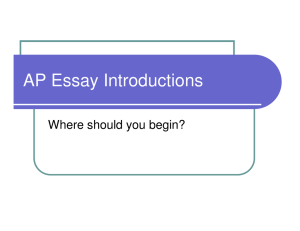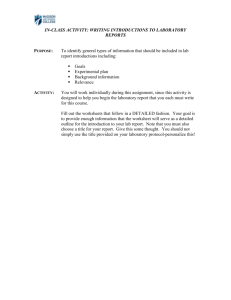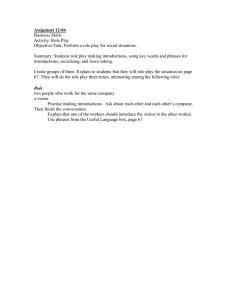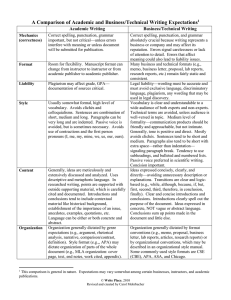Scholarly Writing PPT
advertisement
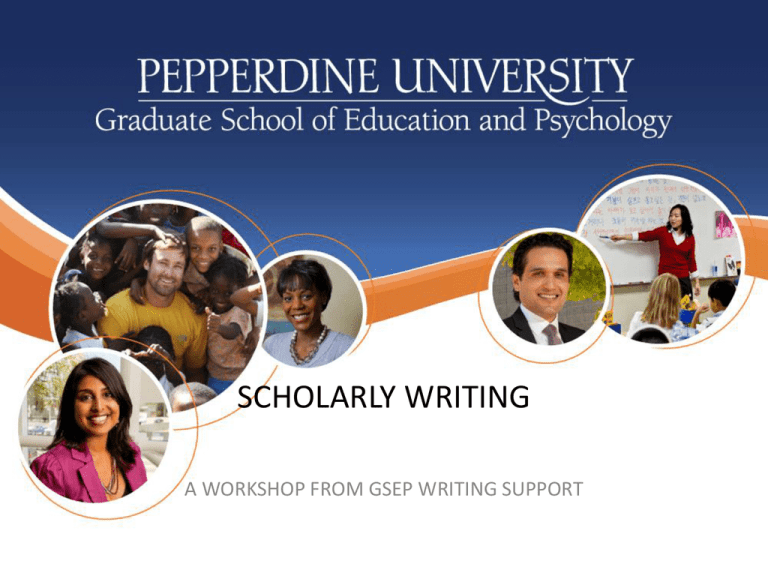
SCHOLARLY WRITING A WORKSHOP FROM GSEP WRITING SUPPORT INTRODUCTIONS Introductions generally start from broad to specific. In particular, they provide: • Background on the subject • Context within which you’ll be discussing the subject • Definition of the topic, when necessary • Scope of the topic • Thesis statement or overview PURPOSE OF INTRODUCTIONS An effective introduction • Grabs the readers’ attention, • Motivates them to continue reading • Establishes the tone (credible, objective) • Establishes a rapport with the reader • Limits the scope of the topic (thesis statement) (Cheryl Hamilton, Essentials of Public Speaking, 5th ed. Wadsworth, 2012) INTRODUCTIONS: EXAMPLES They woof. Though I have photographed them before, I have never heard them speak, for they are mostly silent birds. Lacking a syrinx, the avian equivalent of the human larynx, they are incapable of song. According to field guides, the only sounds they make are grunts and hisses, though the Hawk Conservancy in the United Kingdom reports that adults may utter a croaking coo and that young black vultures, when annoyed, emit a kind of immature snarl. . . . (Lee Zacharias, "Buzzards." Southern Humanities Review, 2007) INTRODUCTIONS • • • • • According to Webster’s Dictionary, . . . When you gave us this assignment to "describe in detail a place you know well," my first thought was to write about my bedroom closet. . . . (As a general rule, avoid openings that comment on the writing assignment itself.) Sometimes you've got to stick your neck out on a limb and keep your nose to the grindstone. . . . (Avoid clichés and mixed metaphors.) In this essay, after giving the subject a lot of thought, I am going to write about . . .. (Skip the announcements.) Framed fantastically against the expansive cerulean sky was a soaring wedge of gossiping, gabbling geese, a shimmering cocaine-colored V haloed in sunlight and dusted with the durable dreams of earthbound warriors . . .. (Avoid excessive alliteration, needless modifiers, and Roget's Thesaurus.) THESIS STATEMENTS/OVERVIEWS • While effective teachers plan and prepare, they also have the intuitive ability to improvise when required, an ability most recently referred to as “pedagogical abandon.” • This literature review is organized into the following major sections: bereavement, meaning and growth. Strategies to Improve Writing Style -from Chapter 3 Writing Clearly and Concisely (APA Manual, 6th ed.) Three approaches to achieving professional and effective communication are: (a) writing from an outline; (b) putting aside the first draft, then rereading it later; and (c) asking a colleague [or classmate] to review and critique the draft for you (APA, 2010, p. 70).

